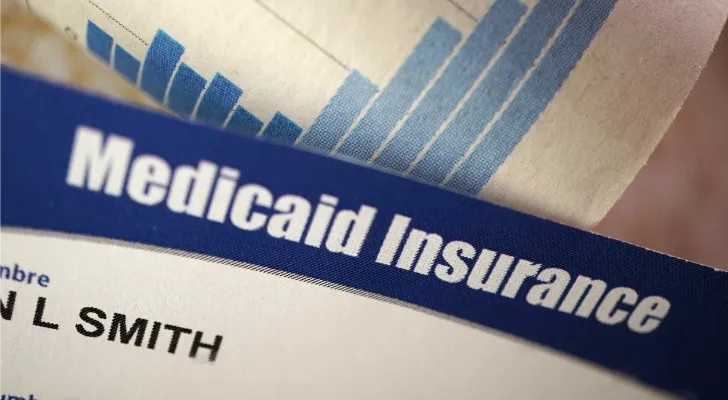
An individual can protect their assets from Medicaid, including their home, by placing them into a trust. Essentially, the assets become owned by the trust and not by the individual. This mechanism can decrease the individual’s asset count for Medicaid eligibility, presenting a way to potentially conserve wealth and secure necessary medical care. However, like all decisions, this presents benefits and potential risks. Involving a financial advisor in navigating these complexities helps to balance asset protection and accessibility to medical care.

Medicaid, the U.S. health program for low-income individuals and families, comes with its fair share of eligibility requirements. The program takes into account both income and assets when determining eligibility.
Medicaid considers an individual’s assets through the “means test” process. Assets counted, which depends on the state you are in, include cash, bank accounts, retirement accounts, real estate and vehicles, with specific limits that can change annually depending on the state.
However, this doesn’t encompass all assets. Exempt ones typically comprise a person’s primary residence, some personal belongings, one vehicle and prepaid funeral and burial expenses. Non-exempt assets, counted by Medicaid, cover bank accounts, stocks, bonds, and second homes. For instance, if an individual holds a significant amount in stocks, those would count toward the Medicaid asset test, potentially affecting their eligibility.
An applicant’s primary home is typically exempt from the Medicaid asset limit, so placing it in a trust usually isn’t necessary. If you are temporarily living elsewhere, like a nursing home or hospital, your home still usually qualifies as your primary residence. Medicaid also typically disregards the value of your home if your spouse or certain dependent relatives are living there.
However, if the home isn’t your primary residence or your equity in it exceeds a certain limit, you may need to transfer the property to a trust to protect it from Medicaid.
States have different rules regarding this equity limit, and it’s essential to consult your state’s Medicaid program for specific details. In 2023, these equity limits range from $688,000 to $1,033,000, depending on the state.
The Medicaid look-back period is a stipulated duration during which Medicaid examines an applicant’s financial transactions to see if any assets were transferred for less than fair market value. This period stands currently at 60 months across most states.
For example, if Jane, a retired nurse, transferred her beach house to her children during the look-back period to qualify for Medicaid, this could lead to a penalty period of Medicaid ineligibility. Therefore, strategic Medicaid planning should consider this look-back period to prevent potential penalties.

While revocable trusts offer flexibility as they can be changed or revoked by the trustor, they won’t protect assets from Medicaid. Irrevocable trusts, like Medicaid asset protection trusts (MAPTs), on the other hand, remove assets from an owner’s control, rendering them eligible to meet Medicaid requirements.
When you create an irrevocable trust, you transfer ownership of your assets to a trustee, relinquishing control over them. Since you no longer own these assets, Medicaid generally doesn’t consider them as part of your countable assets.
As their name indicates, Medicaid asset protection trusts (MAPTs) are irrevocable trusts designed specifically to safeguard assets from Medicaid. However, there’s a catch: the trust must be set up and funded well in advance of any Medicaid application so the transfer doesn’t occur during the Medicaid look-back period.
Shielding assets from Medicaid carries more than just financial considerations – it entails crucial moral implications as well. Some view it as wealth preservation, while others may perceive it as exploiting a system intended to aid those in need. It’s essential to weigh these ethical considerations and conduct any form of Medicaid planning within strict legal bounds.
By protecting assets, we can prevent a healthy spouse from ending up impoverished when the other requires long-term care, and shield the family home from being sold to cover medical expenses. This is crucial, particularly for lower and middle-class families who might face severe financial hardship due to long-term care costs.
For instance, in a scenario where John, a retired teacher, requires long-term medical care and has to use Medicaid, the program cannot seek repayment from his primary residence, provided it’s in an irrevocable trust.
While primary residences typically aren’t considered in a person’s Medicaid application, there are certain circumstances where a home is not exempt from Medicaid’s asset limits. In these cases, an irrevocable trust like a Medicaid asset protection trust (MAPT) can protect a home from Medicaid, provided its transferred to the trust beyond the range of the five-year look-back period.
Photo credit: ©iStock.com/Jeremy Poland, ©iStock.com/Kameleon007, ©iStock.com/shapecharge
Read More About Estate Planning financial advisor to create an estate plan." />
financial advisor to create an estate plan." />



More from SmartAsset
SmartAsset Advisors, LLC ("SmartAsset"), a wholly owned subsidiary of Financial Insight Technology, is registered with the U.S. Securities and Exchange Commission as an investment adviser. SmartAsset's services are limited to referring users to third party advisers registered or chartered as fiduciaries ("Adviser(s)") with a regulatory body in the United States that have elected to participate in our matching platform based on information gathered from users through our online questionnaire. SmartAsset receives compensation from Advisers for our services. SmartAsset does not review the ongoing performance of any Adviser, participate in the management of any user's account by an Adviser or provide advice regarding specific investments.
We do not manage client funds or hold custody of assets, we help users connect with relevant financial advisors.
This is not an offer to buy or sell any security or interest. All investing involves risk, including loss of principal. Working with an adviser may come with potential downsides such as payment of fees (which will reduce returns). There are no guarantees that working with an adviser will yield positive returns. The existence of a fiduciary duty does not prevent the rise of potential conflicts of interest.